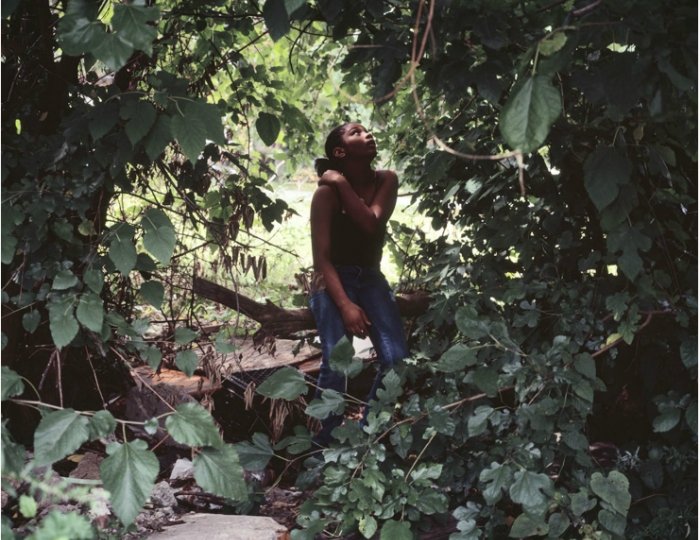Kelly K. Jones’s work explores the boundary between documentary and conceptual ways of image making.
Many of my photographs depict scenes from my block in North Lawndale, a neighborhood on the West Side of Chicago where I was born and raised. While photo essays of American landscapes in economic decline are often ripe with visual clichés, these pictures allow for another way of telling.
In my community and home, I photograph the people I love: my family, my next-door neighbors, my friends, my childhood babysitter. I don’t work in a studio or take portraits in the sitter’s home, but rather in urban spaces that the subjects pass through each day. The neutral, outdoor environment is open to interpretation and fantasy, and supportive of collaboration.
Mimi walks through clover flowers; Nana smiles shyly through low-hanging branches; my mother and Donna wander through an overgrown section of Independence Avenue. The people I photograph are given room to play and re-image themselves and their environment, upsetting assumptions of what inner-city life looks like. Interspace does not attempt to hand out answers, but challenges behavior, environment, and identity.
Blending intimacy and artifice, these portraits affect a new way of considering the figure. Sometimes I come away from a shoot with formal, stoic images. Other days are more playful and candid. Almost always, my friends and family perform in a way that defies expectations—both theirs and mine.
Kelly K. Jones has lectured on her work at the Art Institute of Chicago, North Park University, and Governors State University. Her awards include the Chicago Public Library Women’s History Month Artist (Lincoln Park Public Library, 2012), the James Weinstein Memorial Fellowship (2012), First Place in the Union League & Civic Arts Foundation Visual Arts Competition (2011 and 2012), the Municipal Art League Fellowship (2012), and the Claire Rosen and Samuel Edes Foundation Prize for Emerging Artists (Finalist, 2012).
